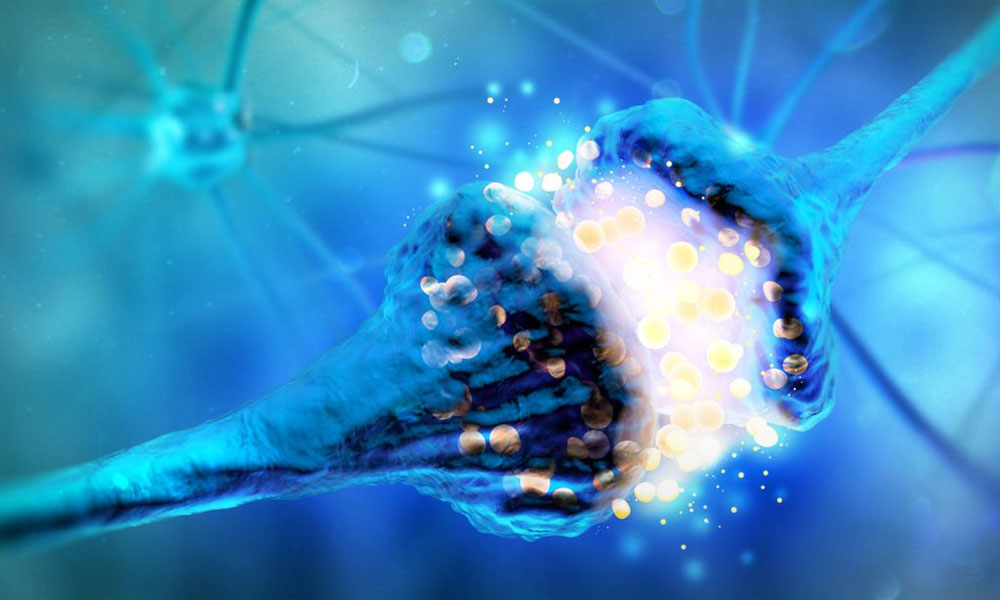Japanese Study Explains How Dopamine Receptors Drive Motivation

If you’re feeling unmotivated, blame it in your dopamine receptors. A brand new research reveals that an impaired reward system can result in disinterest in attaining life objectives. Several neuropathological situations, akin to melancholy or anxiousness, can decrease motivation and diminish willpower.
In the most recent Japanese research, scientists analyzed the conduct of monkeys after manipulating their reward system community. They discovered a number of very important lacking elements of their reward system which might clarify their lack of motivation.
But, the place does motivation come from, anyway? What drives us to attain objectives or full monotonous duties essential for our survival? The answer lies within the reward system of our brains, which incorporates dopamine receptors. This evolutionary mechanism prompts us to work and helps us weigh the prices and advantages of taking dangers. If we resolve the perceived reward warrants the hassle to earn it, this mechanism drives us to take that danger.
However, their reward programs turn out to be weakened in individuals with neurological situations like melancholy or Parkinson’s illness. This results in decreased motivation to work, continual fatigue, and blunted dopamine receptors.
This new data builds on earlier analysis.
Previous studies have pointed to low dopamine ranges as a core characteristic of problems like melancholy. When the reward system turns into disrupted, it makes even easy duties appear tough to perform. The hallmark signs of melancholy akin to lethargy or lack of motivation stem from disrupted dopamine receptors.
Recently, neuroscientists have begun finding out how individuals can “beat the system” and overcome behavioral challenges. They’re investigating how the reward system performs cost-benefit analyses to resolve whether or not to finish a process or not. By dissecting the brain’s dopamine receptors, they will work out how you can bypass discovered behaviors and enhance motivation.
The Japanese research included Dr. Yukiko Hori of National Institutes for Quantum and Radiological Science and Technology, Japan, and her colleagues. Their analysis led to a larger understanding of how the reward system evaluates cost-benefit trade-offs. Their findings have been printed within the journal PLoS Biology.
The research exhibits how dopamine receptors drive motivation.
Dr. Hori explains the aim of their analysis: “Mental responses such as ‘feeling more costly and being too lazy to act’ are often a problem in patients with mental disorders such as depression, and the solution lies in the better understanding of what causes such responses. We wanted to look deeper into the mechanism of motivational disturbances in the brain.”
To carry out the research, Dr. Hori and her colleagues honed in on dopamine (DA). This neurotransmitter encourages motivation and regulates conduct primarily based on cost-benefit analyses. Dopamine will get transmitted within the brain by dopamine receptors or molecular anchors that bind DA molecules. These receptors ship alerts by neuronal pathways within the brain.
Since the receptors play particular elements in DA sign transmission, the scientists needed to review how they affect DA signaling. So, utilizing macaque monkeys as topics, the staff hoped to know how the 2 courses of DA receptors have an effect on motivation. These dopamine receptors are the D1-like receptor (D1R) and the D2-like receptor (D2R).
In their analysis, the scientists first educated the animals to carry out two totally different duties: “reward size” and “work/delay tasks.” Then, the staff measured how the required effort and perceived reward influenced conduct. They additionally altered the dopamine receptors of the monkeys to gauge their response.
Dr. Takafumi Minamimoto, the co-author of the research, explains the next:
“We systematically manipulated the D1R and D2R of these monkeys by injecting them with specific receptor-binding molecules that dampened their biological responses to DA signaling. By positron emission tomography-based imaging of the brains of the animals, the extent of bindings or blockades of the receptors was measured.”
Next, they allowed the monkeys to carry out duties to earn rewards. The staff noticed whether or not the monkeys accepted or refused to hold out the duties. They additionally recorded their response time to cues associated to the duties.
Both courses of dopamine receptors play a vital position in making selections
After analyzing the information, the scientists uncovered attention-grabbing findings of the dopamine receptors concerned in decision-making. They discovered that the cost-benefit evaluation of finishing duties required each D1R and D2R. What’s extra, the staff noticed that these dopamine receptors performed a job in two elements of the cost-benefit evaluation:
- incentivizing the motivation (the scale of the reward-motivated the monkeys to take motion)
- rising delay discounting (the tendency to choose rapid, smaller gratification fairly than bigger, delayed rewards)
They additionally famous that cost-benefit analyses contain DA transmission by way of each dopamine receptors. Specific neurobiological processes govern advantages or “reward availability” and prices or “energy expenditure associated with the task.” “Workload discounting,” the method of discounting the perceived worth of rewards primarily based on the hassle required, solely concerned D2R manipulation.
Prof. Hori emphasizes, “The complementary roles of two dopamine receptor subtypes that our study revealed, in the computation of the cost-benefit trade-off to guide action, will help us decipher the pathophysiology of psychiatric disorders.”
In the long run, scientists hope their analysis on dopamine receptors will improve the lives of many. Perhaps subsequent research will present extra perception on how we will manipulate our reward programs to extend motivation. This can particularly assist individuals with neurological or psychological problems have a greater high quality of life.
Basically, rising dopamine makes individuals extra motivated to attain objectives. A correctly working reward system permits an individual to carry out cost-benefit analyses successfully. They will put forth effort as long as the perceived rewards outweigh the danger concerned. In an individual whose reward system isn’t functioning correctly, nevertheless, they’ve much less motivation to work.
Final ideas on a research exhibiting how dopamine receptors affect motivation
Dopamine, in any other case often known as the “feel-good hormone,” acts as an necessary a part of the brain’s reward system. It will get launched when your brain expects a reward, which motivates you to work to acquire it. However, individuals with dysfunctional dopamine receptors are likely to have below-average ranges of this necessary chemical. This results in an absence of motivation and decreased effort in finishing duties.
A brand new Japanese research exhibits how two dopamine receptors play a job in driving motivation. Their analysis could result in improved therapies for problems attributable to low dopamine ranges, akin to melancholy.












